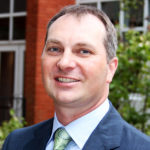By Jong Eun Jung

Greg Harvey
After freshman year, you may be wondering what to do with your summer, since many students find it difficult to land an internship with only one year of college on their résumés. Even though an internship might not be an option, it’s still important to use the summer after your freshman year to gain professional experience.
“It’s okay to have a break, but you want to continue to add stories and experiences to your résumé so that it has a good flow to it,” said Greg Harvey, Director, Accelerator® Business Immersions at Vanderbilt. To help you plan out a productive summer, here are six smart things rising sophomores can do during their break:
Volunteering during the summer after your freshman year
Use this summer to make a difference by volunteering. Volunteering is not only beneficial to the community; it gives you a sense of purpose and helps you develop valuable skills like time management and communication. Find a local organization supporting a cause that you care about and contact them for volunteer opportunities. You can also create your own service project by identifying an issue in your community and working to solve it.
Summer School
If the credits are transferable, leverage the summertime to take a course or two online or at your local community college; this will fulfill core requirements and lessen your course load for the coming next semester. You don’t necessarily need to take a class for academic reasons, though: if you want to develop a particular skill or learn more about a subject, enroll in an interesting summer school or online class. You might learn how to code, build an app, or launch a business.
Summer Job
Getting a summer job exemplifies your independence and helps you gain work experience that can go on your résumé. Apply for jobs that align with your skill set; for example, if you like math, you can become a math tutor. You’ll gain experience doing something you enjoy while earning some money for during the school year. Looking forward, summer jobs are also a great example to bring up in interviews for internships or future jobs. “If you are a lifeguard, my advice would be that (it) is still a great story to have. You just need some stories to have an experience to elaborate on what you are thinking about to advance your career,” Harvey said.
Travel during the summer after your freshman year

Vanderbilt Accelerator students
Traveling broadens your mind by providing diverse and enriching experiences, whether it be understanding a different culture or creating a lifetime memory. Plan a road trip with your friends or go on a backpacking trip by yourself over the summer. If you don’t think you’ll be able to squeeze in a semester abroad during the school year, summer is also a great time to study abroad for either a few weeks or months. You’ll experience a new culture, learn a new language, and earn credits towards your diploma.
Personal Projects
Summer break is a great time to start a personal project or pursue any hobbies you don’t have time for during the school year. If you’re interested in writing, try starting a blog. If you enjoy taking photos, try freelancing as a photographer. If you choose wisely, these projects can help you produce a portfolio to show to future employers. In addition, you may also discover new interests that will help you figure out which post-grad careers might be right for you.
Summer Immersion
If you’d like to gain professional experience and learn industry skills, a summer immersion is an excellent choice. Summer immersions are offered by a handful of schools around the country, and each is set up a bit differently. At the Vanderbilt AcceleratorⓇ Summer Business Immersion, students consult in teams for four different companies over the course of a month. In addition to developing critical thinking, public speaking, and collaboration skills, participants network with peers from diverse backgrounds and chat with renowned professors from the Vanderbilt Business School. “(It) is unique in that there is classroom learning, but students are also working on real world problems that companies are currently facing (and) want a fresh perspective (on),” Harvey said.